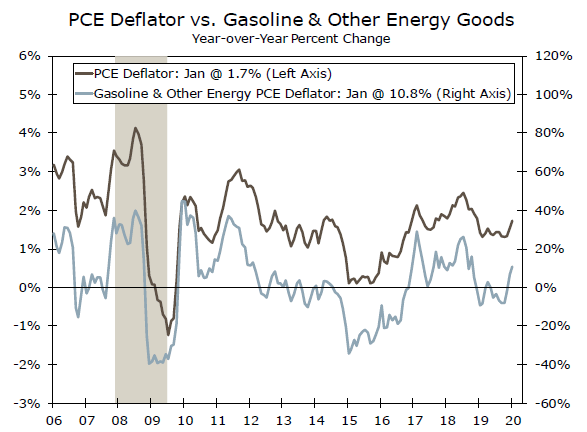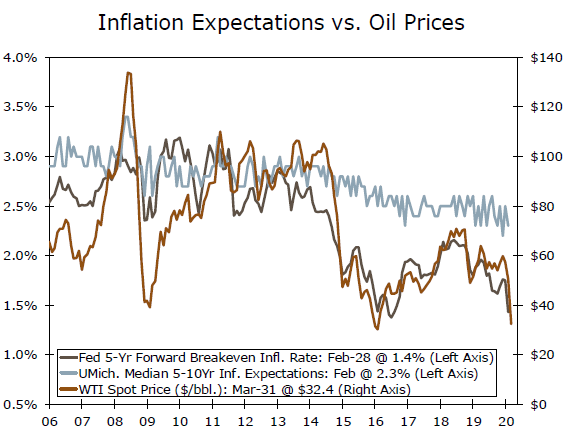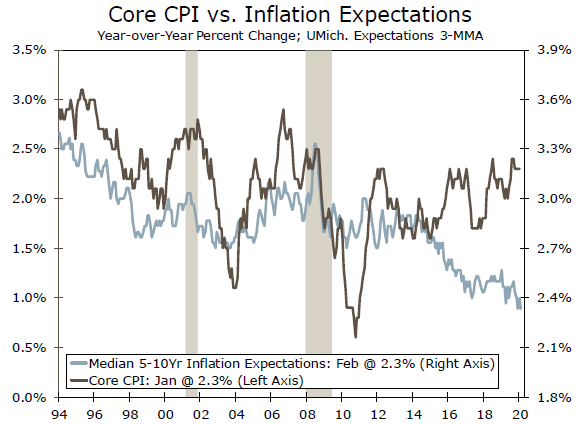Plummeting Oil Brings Inflation-Expectation Headache for Fed
Even headline inflation had been struggling to hit the Fed’s 2.0% goal in recent months, but it at least looked to be firming. After a sharp decline in oil prices in the last few months of 2018, favorable base effects were helping push the 12-month rate of change in PCE inflation back up again. The unraveling of the OPEC+ alliance and Saudi Arabia’s announcement to produce more oil despite crumbling demand therefore represent a further delay to inflation hitting the Fed’s target. WTI spot prices are down roughly 25% since Friday. Assuming prices stayed right around current levels for the next few months, we estimate headline PCE inflation would slip to 1.0% in the second quarter, down from its current year-ago pace of 1.7%.
For households, the significantly lower rate of inflation will bolster real incomes. That should help offset some of the moderation in nominal income as job growth weakens and average hours worked edges lower. However, with travel and even local outings being curtailed in an effort to limit the spread of COVID-19, the windfall is unlikely to be spent as quickly as we saw in 2014-15. At the same time, lower oil prices will add further pressure to energy-related capital spending.
While these effects could fade in the coming quarters, a longer-term problem for the Fed is the potential for lower inflation expectations as a result of recent price moves. Households’ inflation expectations for 5-10 years out never recovered after the oil rout of 2014-2016 and were already stuck near historic lows in February. Similarly, market-based long-term expectations of inflation have retreated and are only about 10 bps off their lows of 2016.
Could the Drop in Oil End Up Pushing Core Inflation Even Lower?
Near-term, the FOMC will be more concerned about the path of core inflation than headline inflation. That is because, as the past few days’ events have shown, large swings in oil prices are often driven by political developments and are not always an indication of underlying demand.
While demand dynamics are certainly shifting amid efforts to contain the spread of COVID-19, the plunge in oil should have a negligible effect on core consumer price inflation. If sustained, the drop would likely affect the transportation costs of core goods and even some services like airline transportation. However, goods account for only one-quarter of the core PCE deflator. In addition, transport costs are only one of many inputs, such as labor, packaging and marketing. Not surprisingly then, oil price fluctuations are not statistically significant when added to our preferred model of core PCE inflation. But to the extent oil keeps a lid on overall inflation in the coming months, the swift drop in prices could indirectly weaken core inflation further down the road, and it introduces another challenge for the Fed in getting inflation back to 2% on a sustained basis.



